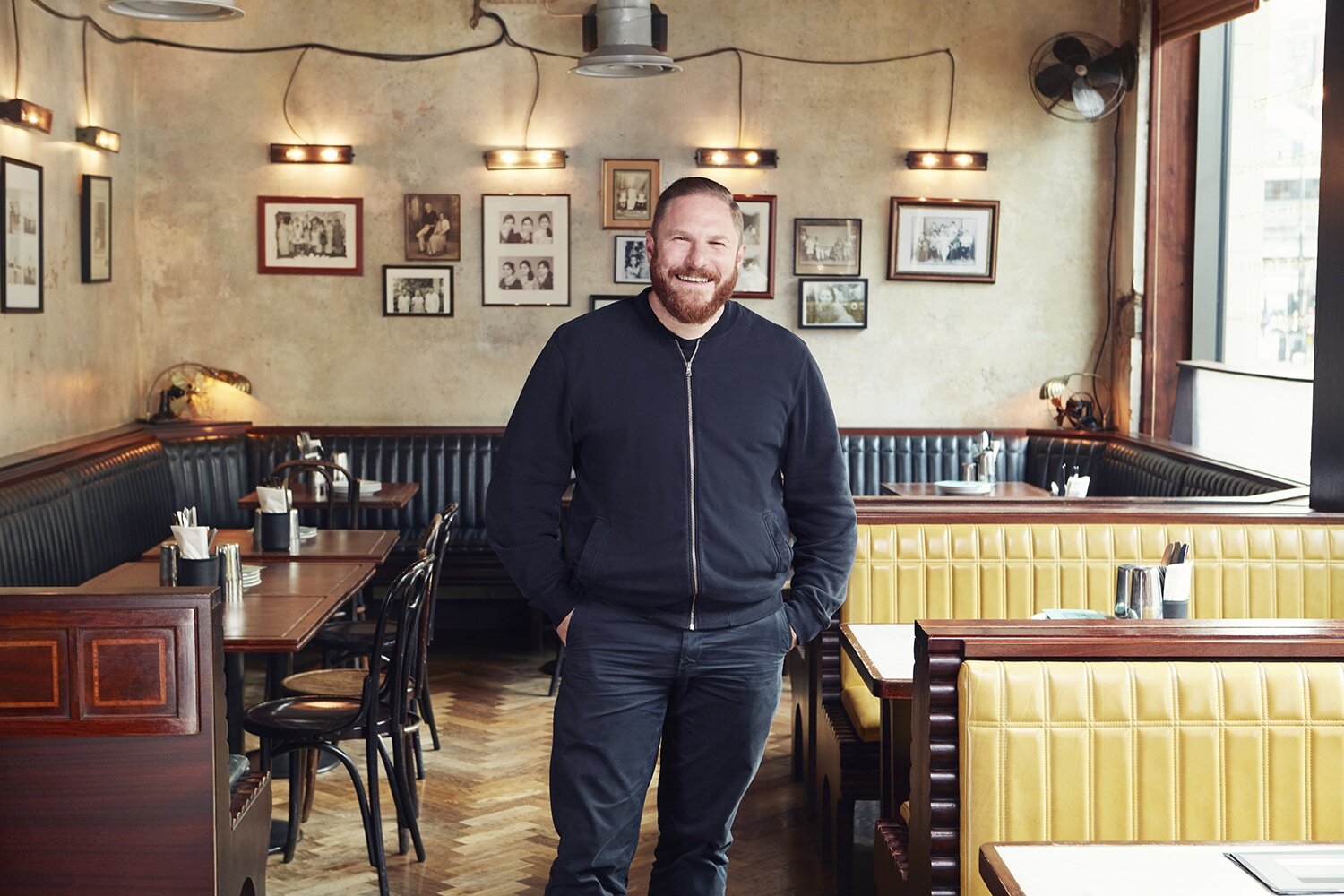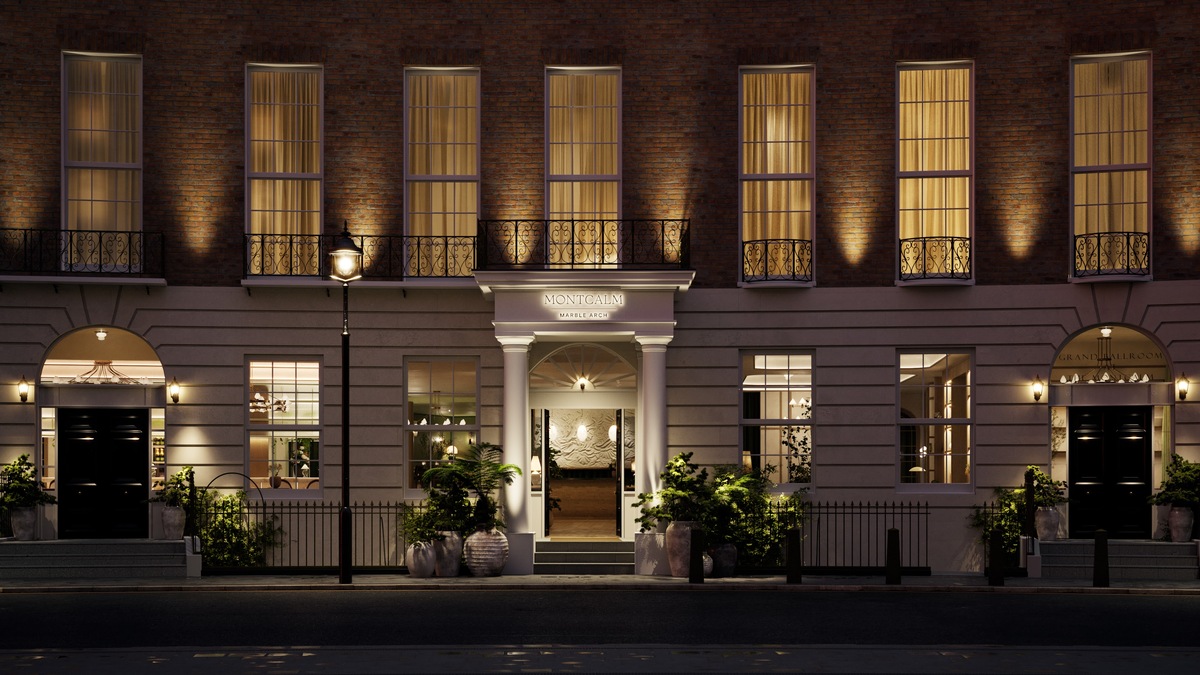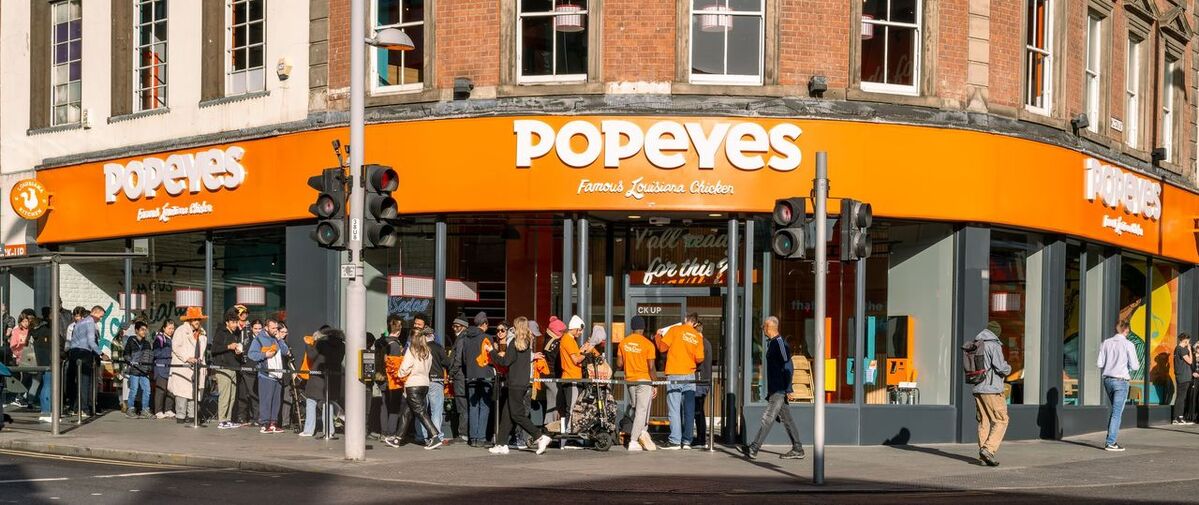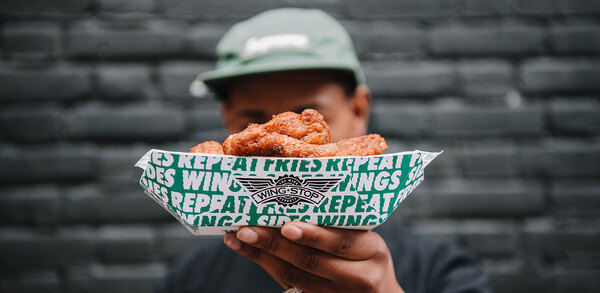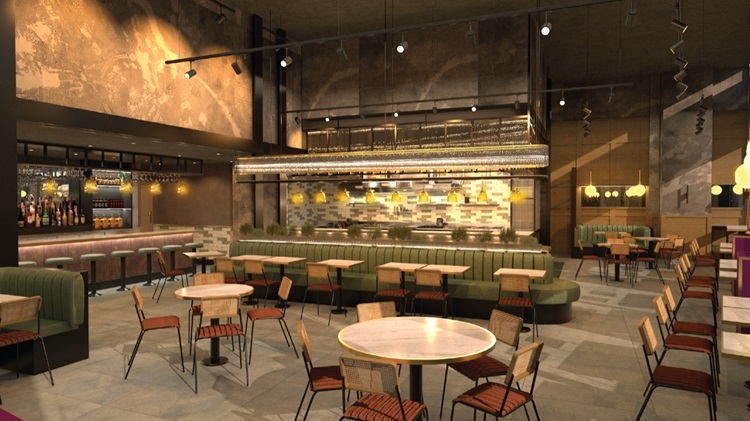Curry in a hurry: Brian Trollip on how Dishoom tackled takeaway
Dishoom, famous for its long queues of fans hungry for its hugely popular take on Indian food, has finally moved into the delivery space. Sophie Witts talks to managing director Brian Trollip about the transition.
Brian Trollip, Dishoom’s managing director, admits he wasn’t always keen on delivery.
“It’s something we tried to stay away from,” he says. “In the old world before the pandemic, we were busy in the restaurants and didn’t want to stretch the teams too much.”
Since launching in London in 2010, the Indian restaurant group has grown to five sites in the capital and opened in Edinburgh, Manchester and Birmingham, but has shied away from the rise of takeaway apps. Instead, Dishoom has become known for its queues, with customers lining up to eat bacon naans and black dal in its spacious, art deco dining rooms.
But when the pandemic hit last March, the company had a rethink. After initially offering delivery from its restaurants, the group partnered with Deliveroo Editions to open six standalone ‘dark kitchens’ in London and one each in Brighton and Cambridge, where it doesn’t currently have dine-in sites.
This shift in strategy has been so successful the company has avoided the closures seen across the industry over the past year, and even hired 50 new staff.
“We’ve had no restructures or redundancies, and I’m not sure we’d have been able to do that without delivery,” says Trollip, who has been part of Dishoom’s senior team for 10 years.
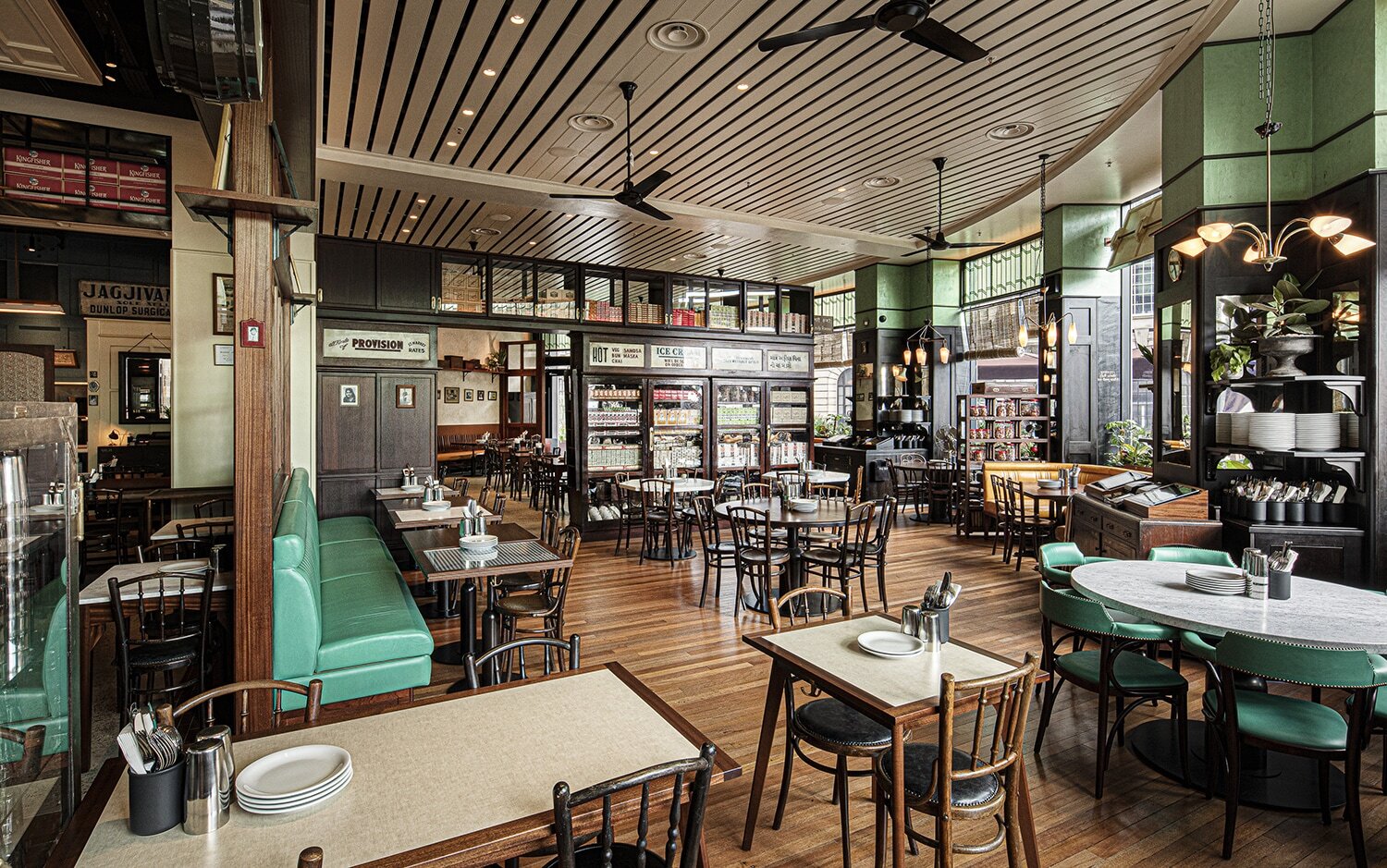
The company’s pivot meant it could quickly mobilise to cook more than 15,000 meals for frontline workers. It has also provided more than one million meals to children who would otherwise go hungry through its ‘meal for a meal’ charity partnerships in India and the UK.
Keeping its kitchens busy provided a boost to the team’s mental health during lockdown. Trollip explains: “[Delivery] allowed us to give the team long-term secure employment and an outlet to be creative and carry on working.
“Our priorities have been their physical and financial health. People don’t necessarily have huge homes and getting out of the house to go to work and continue that routine has been helpful.”
He adds that Dishoom remains focused on wellbeing and is “continually working” with its staff to ensure the delivery kitchens are a positive place to work.
Mobile feast
The group’s biggest challenge in moving to delivery was whittling down Dishoom’s restaurant menu to a choice of dishes that travel well. This meant excluding much of its grill menu in favour of two chicken and jackfruit biryanis; three curries, including the ‘chicken ruby’; and a range of meat and vegetable sides.
Two kathi rolls are available for lunch orders, with two desserts including a basmati rice pudding. Deliveroo customers can also order specially bottled cocktails and the Dishoom cookbook with their meal.
“We had to try and figure out how to deliver as much of the Dishoom experience as possible to people at home, which was really difficult,” admits Trollip. “Thinking about packaging was tough and we invested a lot of time and energy in that early on. The challenge was creating a proposition that we can build on which still works once the restaurants are back.”
We had to try and figure out how to deliver as much of the Dishoom experience as possible to people at home, which was really difficult
This focus on quality control meant Dishoom’s famous bacon naan did not made the cut. The much-loved dish is instead sold as a £16 cook-at-home meal kit, rather than off the back of a delivery bike. A vegan option, made with chef Neil Rankin’s Simplicity Sausages, is also available nationwide.
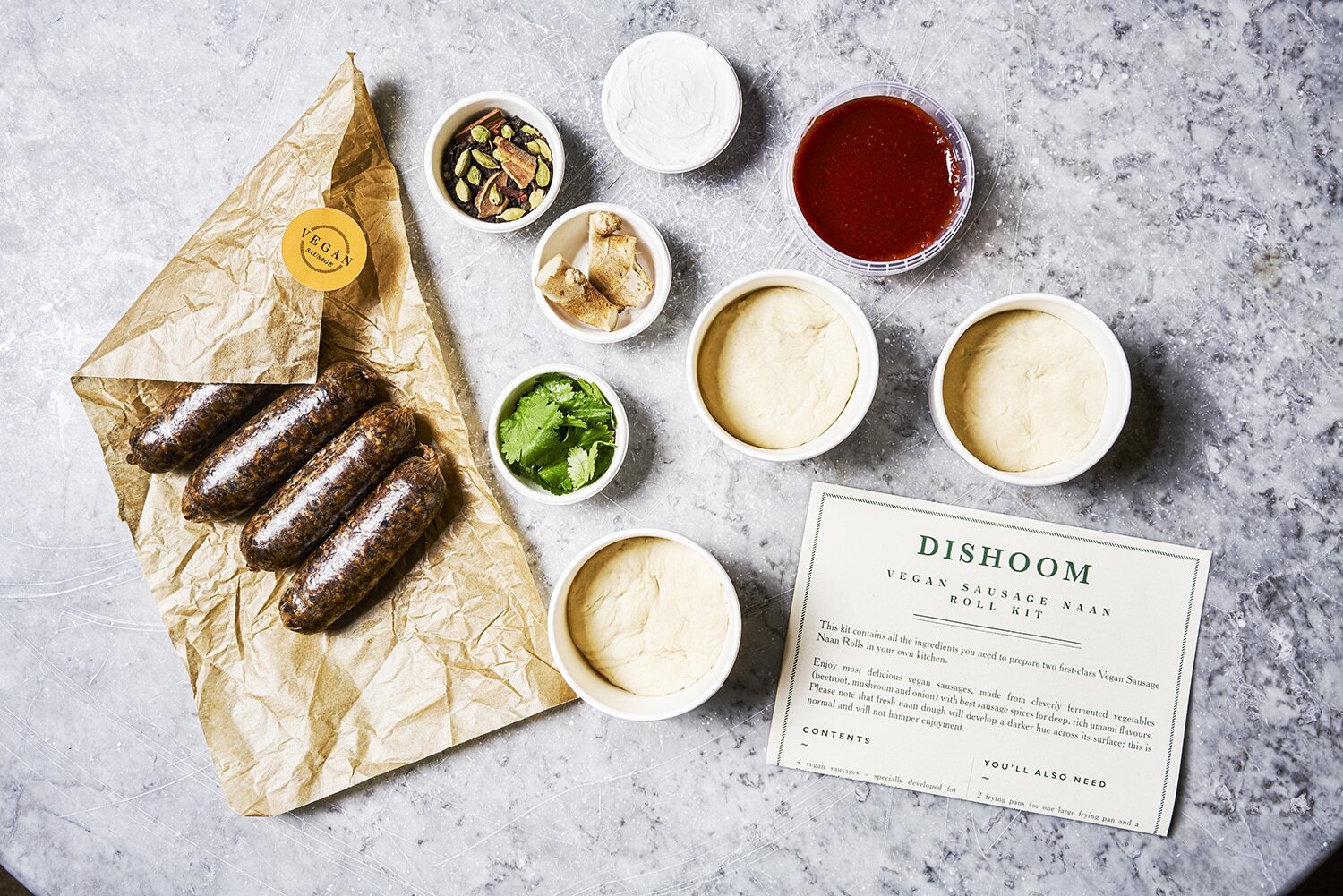
“The difference between a bacon naan cooked at home and one that’s taken 15-20 minutes to get to you is pretty considerable,” explains Trollip. “But we’re glad it’s bringing a bit of joy to people at home in what has been a bonkers time.”
Satellite dishes
Dishoom’s shift to satellite kitchens has also allowed it to reach new customers in Cambridge and Brighton, where it didn’t previously have a presence. Trollip admits this was an “experiment” for the brand, which despite its success has been measured in its expansion over the past 11 years.
“We don’t have plans for a speedy rollout of delivery kitchens across the country if I’m being honest,” says Trollip. “We tried to cover locations around the restaurants. Brighton was a bit of an experiment and has gone down well, and Cambridge is finding its feet, but there are no plans to open in remote locations just yet.”
Though Dishoom has hired new staff for the sites, Trollip insists the group is not “farming out” the cooking, with the majority of dark kitchens staffed by its existing chefs.
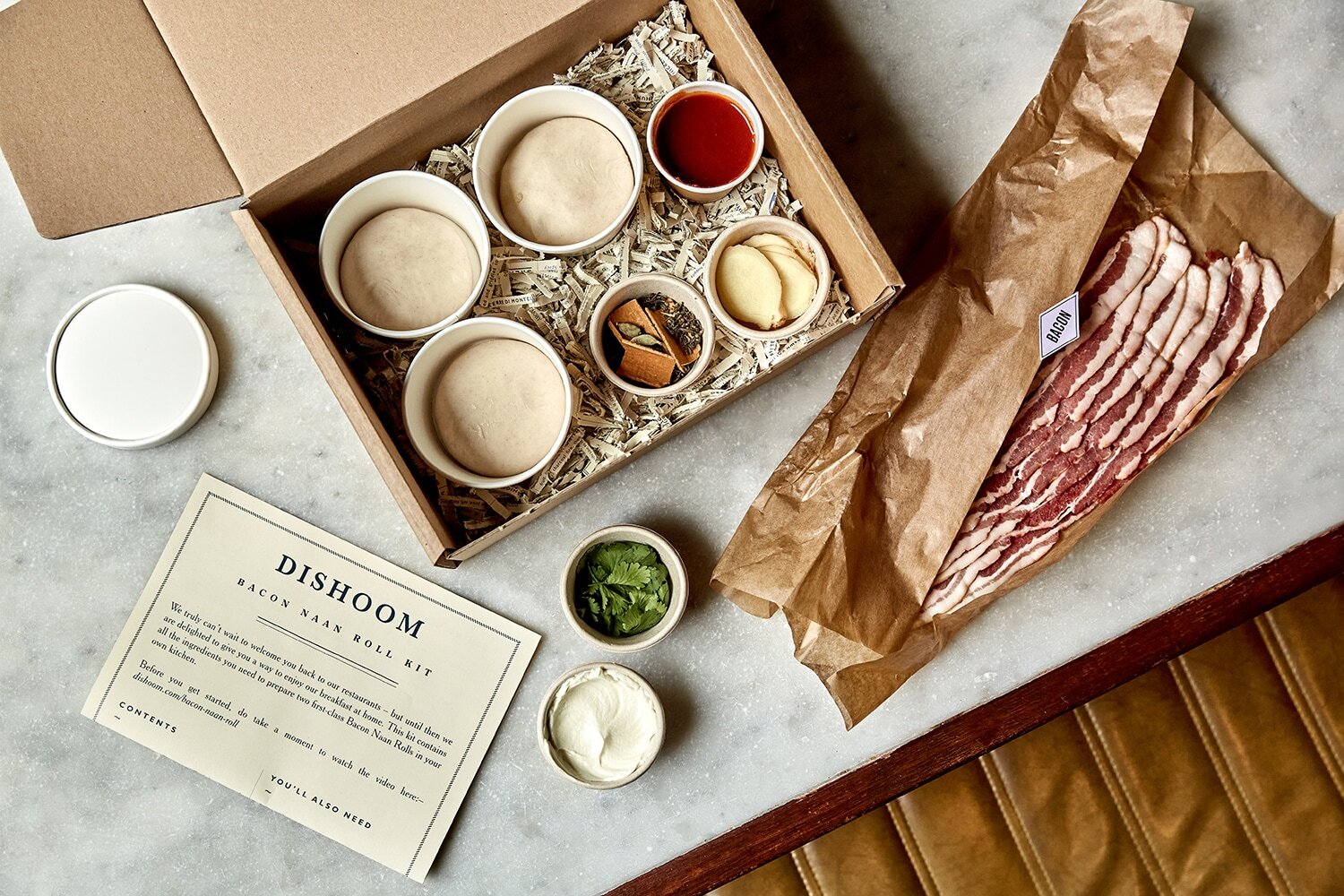
The delivery hubs will remain part of Dishoom in the long-term, even when restaurants can reopen, and may be used to trial new dishes before they hit the main menu. Although meal kits and more curated delivery menus have seen a boom in popularity over the past year, Trollip believes they are not a temporary fad.
“I think the fun and family element of some of these kits is brilliant, and they make great gifts. Are people still going to enjoy them when they’re able to visit restaurants again? If the answer is yes then they’re sustainable.”
He is optimistic too about the long-term prospects of Dishoom once its sites can reopen, but admits the wider hospitality industry faces an uncertain future.
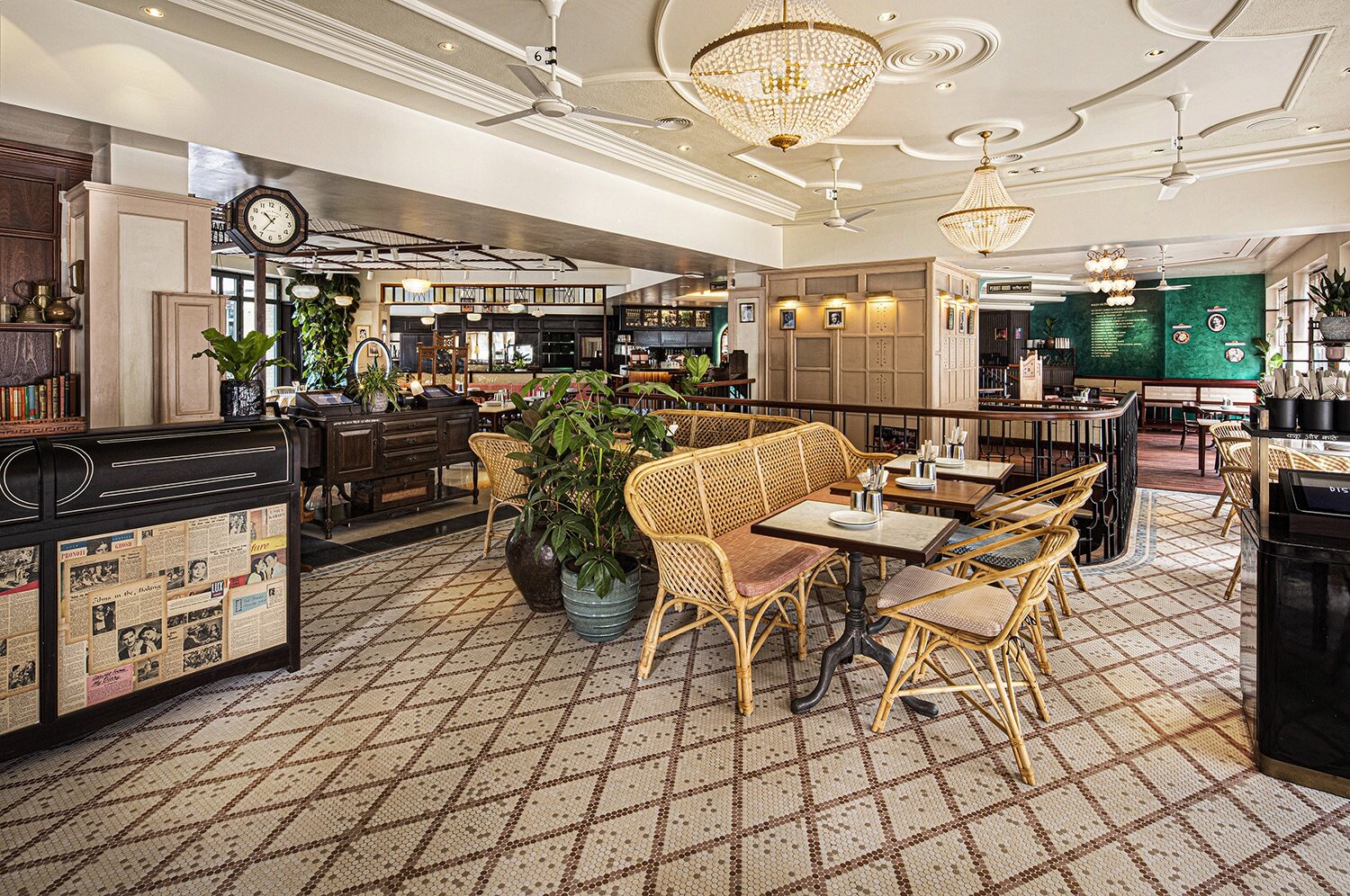
“We have a team of 1,000 incredible people so I’m confident we will pull together and make it work, but the industry as a whole needs more support. There needs to be a real push just to get people up and running. People are depleted to such a level that we’ll have to pull together and work hard to make that happen.
“Something to bear in mind is just how long this journey has been for people and the fatigue they are feeling. Restaurants are going to require a huge amount of focus, we don’t know what kind of world we’re reopening into.”
But despite it all, he is positive the sector will eventually find its feet. “The past year hasn’t been easy for everyone, but there’s a huge amount of creativity that’s come out of that desperation. We’re still standing and now there’s a little bit of light at the end of the tunnel.”
From the delivery menu
- Chicken ruby: Chicken in a makhani sauce £12.50
- Chole: Spiced chickpea curry with a garnish to add at home £9.50
- Pau bhaji: Mashed vegetables with hot, buttered, homemade bun £5.70
- Keema pau: Spiced minced lamb and peas with a toasted, buttered homemade bun £6.50
- Chicken kathi rolI Makhani chicken, green peppers and red onion wrapped with mint chutney in wholewheat paratha £9.50
- Mango lassi Yogurt blended with fresh mango pulp £3.70
Recovery Summit
Join The Caterer’s virtual Recovery Summit on 30 March to hear from Brian Trollip alongside Tommy Banks, chef-director of the Black Swan, Debrah Dhugga, chief operating officer of the Apartment Group, and many more.
For the full agenda and to reserve your free place, click here.
Photography: Jon Cottam (Brian Trollip portrait); Haarala Hamilton (food); John Carey (restaurant)



